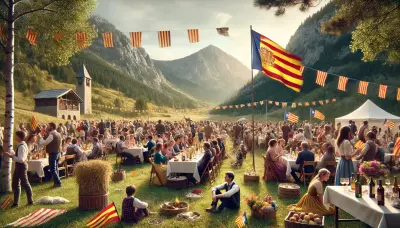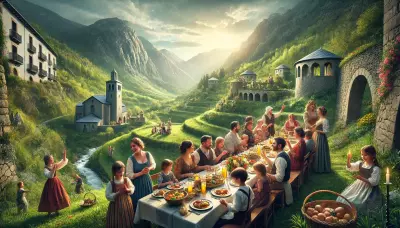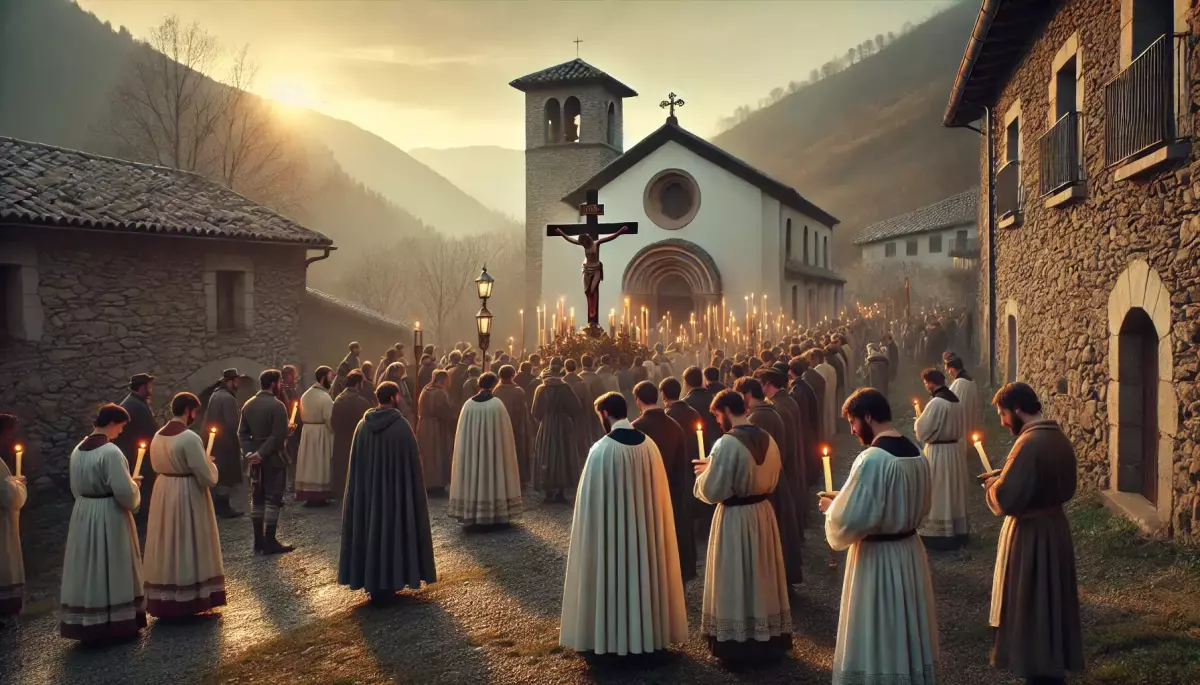The Good Friday is a significant moment in the religious calendar, especially in countries with a strong Christian tradition. In Andorra, this special date is marked by rituals and celebrations that reflect the depth of faith and local culture. The traditions that emerge during this day not only reverberate the history of the crucifixion of Jesus but also strengthen the community bonds among the inhabitants of the small nation in the Pyrenees.
Furthermore, the observance of Good Friday in Andorra highlights the importance of reflection and respect for the religious traditions that shape the cultural identity of the country. In this way, the celebration transcends the mere religious act, providing an opportunity for the community to unite around shared values and its historical heritage. Thus, this date becomes a fundamental pillar in the social and spiritual life of the Andorrans.
History of Good Friday in Andorra
Good Friday, celebrated on the Friday before Easter Sunday, marks a significant moment in the Christian calendar. In Andorra, this date is a national holiday, recognized by the population as a day of reflection and reverence. The origin of the celebration dates back to the early days of Christianity, when the faithful began to observe the crucifixion of Jesus Christ. In the Andorran nation, the Catholic tradition is strong, and Good Friday is an opportunity for citizens to come together in religious and cultural practices.
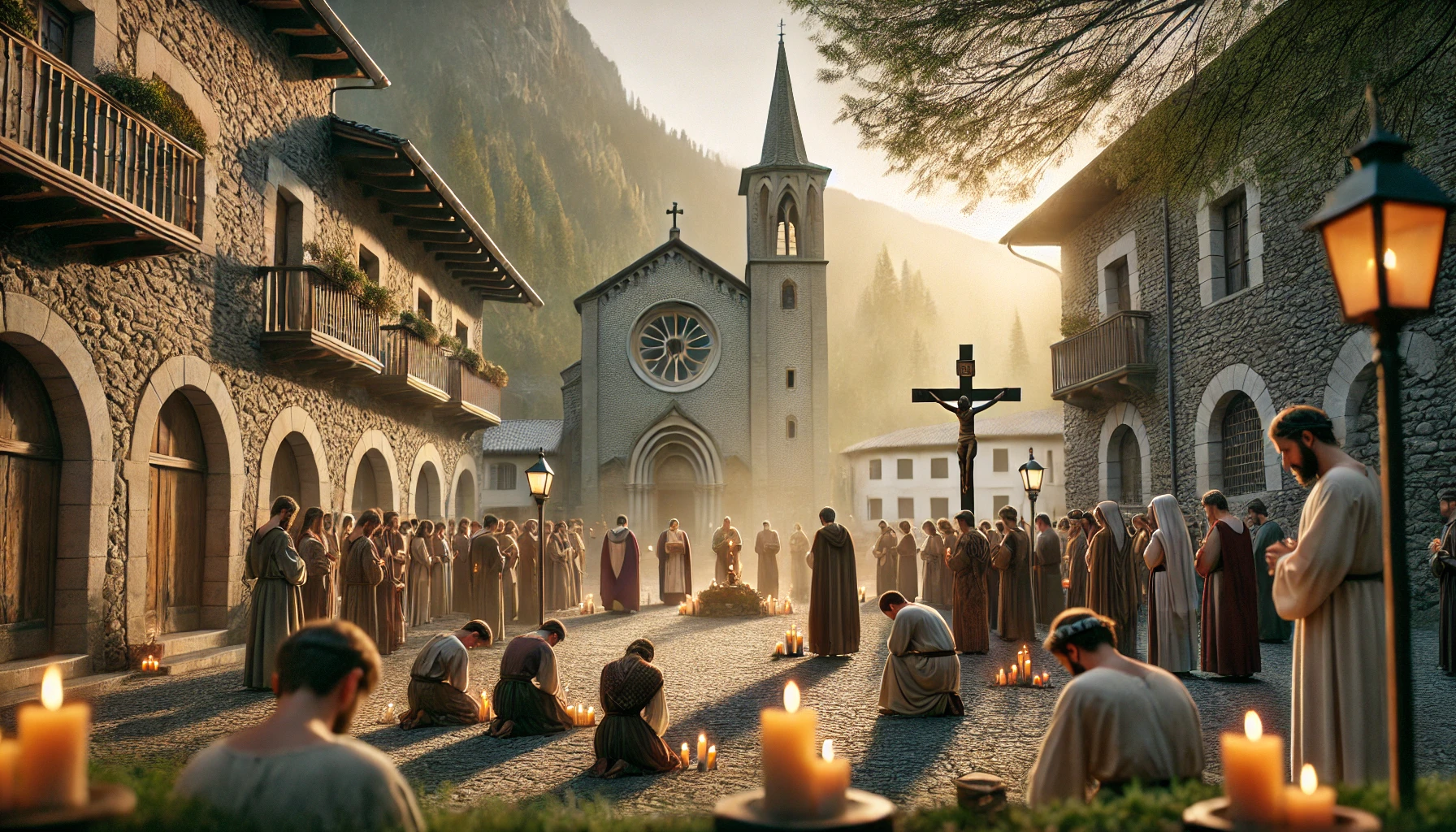
Over the centuries, Good Friday in Andorra has evolved to incorporate local cultural elements. The influence of Spanish and French traditions is also evident, as the country is surrounded by these nations. Religious practices are accompanied by rituals that reflect Andorran history and cultural heritage. Thus, the date transcends mere religious aspects, becoming a moment of unity and national identity.
The holiday is often marked by an atmosphere of calmness and introspection. It is common for Andorrans to participate in religious services at local churches, where the story of the crucifixion is recalled. These ceremonies are often followed by moments of silence and reflection, reinforcing the spiritual importance of the date. Therefore, Good Friday in Andorra is not just a holiday, but an opportunity to reconnect with faith and community.
👉 Download the Calendar for 2025
Full Calendar of Good Friday until 2050
Next Event
New Year's Day - 01/01/2026| Year | Next Date |
|---|---|
| Good Friday in 2027 | 03/26/2027 |
| Good Friday in 2038 | 03/26/2038 |
| Good Friday in 2048 | 03/27/2048 |
| Good Friday in 2024 | 03/29/2024 |
| Good Friday in 2041 | 03/29/2041 |
| Good Friday in 2029 | 03/30/2029 |
| Good Friday in 2035 | 03/30/2035 |
| Good Friday in 2044 | 04/01/2044 |
| Good Friday in 2050 | 04/01/2050 |
| Good Friday in 2021 | 04/02/2021 |
| Good Friday in 2032 | 04/02/2032 |
| Good Friday in 2026 | 04/03/2026 |
| Good Friday in 2037 | 04/03/2037 |
| Good Friday in 2047 | 04/05/2047 |
| Good Friday in 2040 | 04/06/2040 |
| Good Friday in 2023 | 04/07/2023 |
| Good Friday in 2034 | 04/07/2034 |
| Good Friday in 2020 | 04/10/2020 |
| Good Friday in 2043 | 04/10/2043 |
| Good Friday in 2031 | 04/11/2031 |
| Good Friday in 2046 | 04/13/2046 |
| Good Friday in 2028 | 04/14/2028 |
| Good Friday in 2022 | 04/15/2022 |
| Good Friday in 2033 | 04/15/2033 |
| Good Friday in 2039 | 04/15/2039 |
| Good Friday in 2049 | 04/16/2049 |
| Good Friday in 2025 | 04/18/2025 |
| Good Friday in 2036 | 04/18/2036 |
| Good Friday in 2042 | 04/18/2042 |
| Good Friday in 2030 | 04/19/2030 |
| Good Friday in 2045 | 04/21/2045 |
Religious and Cultural Traditions in Andorra
The religious traditions associated with Good Friday in Andorra are rich and varied, reflecting the deep religiosity of the population. One of the most common practices is participation in processions, where the faithful walk in reverence, carrying crosses and religious images. These processions are a way to express the pain of the crucifixion and the hope of resurrection. During this event, it is common for participants to wear dark clothing, symbolizing mourning and reflection.
👉 Download the Calendar for 2025
Another significant tradition is the reenactment of the Passion of Christ, which takes place in various locations throughout the country. These dramatizations are performed by community groups and attract both locals and tourists. Through these presentations, the story of the crucifixion is told vividly, allowing everyone to reflect on its meaning. The community's participation in these reenactments is a testament to the importance of faith in the daily lives of the Andorrans.
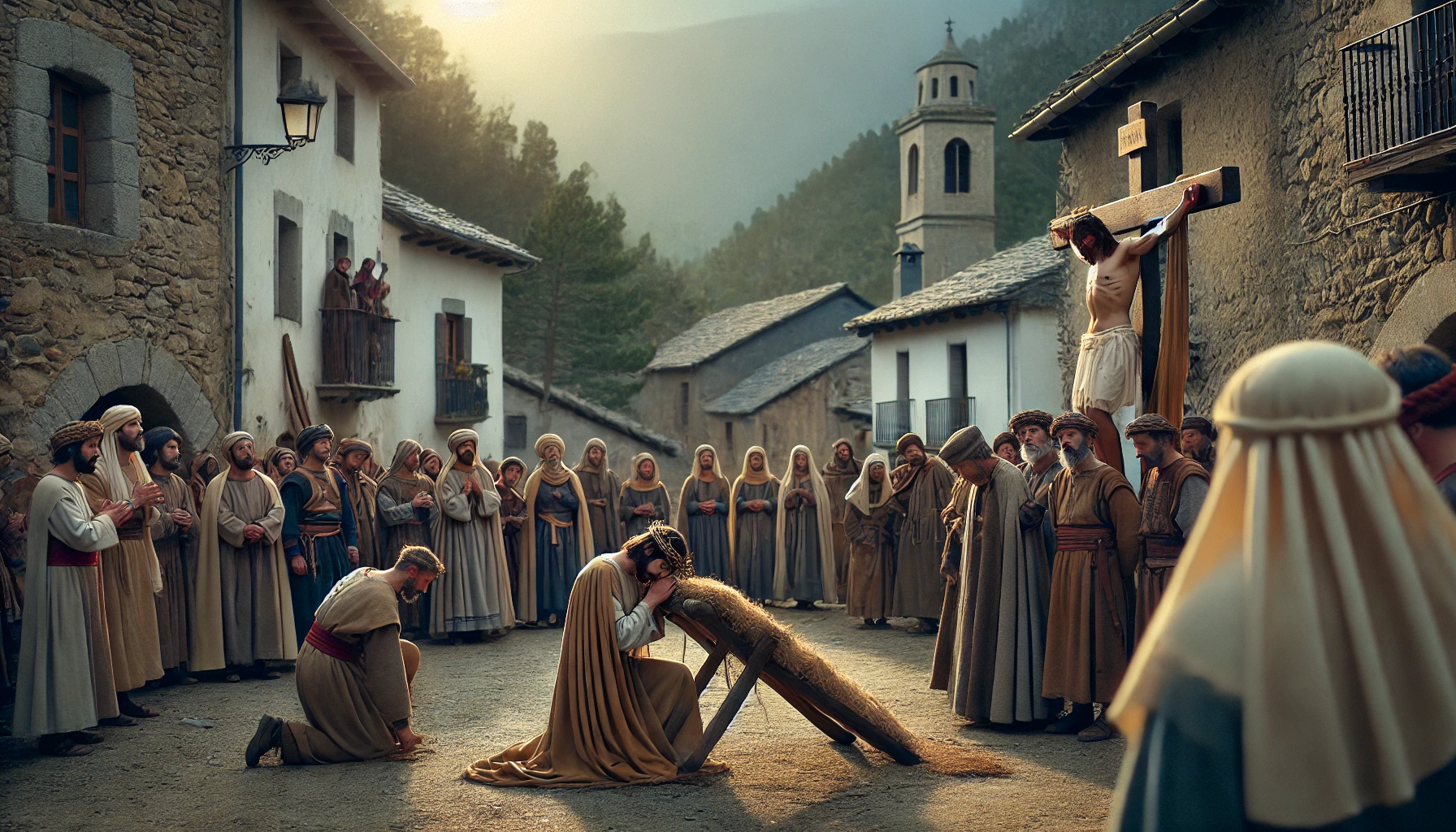
In addition to religious practices, Andorran culture incorporates elements of its history and local traditions. Many Andorrans use Good Friday as an opportunity to gather with family and share moments of reflection. It is common for families to come together to discuss the meanings of the date and what it represents for each individual. This family unity strengthens bonds and cultural identity in the context of Good Friday celebrations.
Celebrations and rituals of Good Friday
The celebrations of Good Friday in Andorra are marked by a series of rituals that emphasize the seriousness of the date. One of the most significant rituals is the Passion Mass, which takes place in local churches. During this celebration, the faithful hear readings from the Bible that narrate the events of the crucifixion. The atmosphere is solemn, and sacred music plays a crucial role, with hymns that evoke the sadness and hope of the resurrection.
In addition to the mass, many Andorrans participate in vigils, which are moments of prayer and meditation. These vigils often extend throughout the night, providing a space for participants to reflect on their lives and the message of Easter. The practice of lighting candles during the vigils is common, symbolizing the light of Christ shining in the darkness. This ritual is especially touching, as it represents the hope that the resurrection brings to the lives of the faithful.
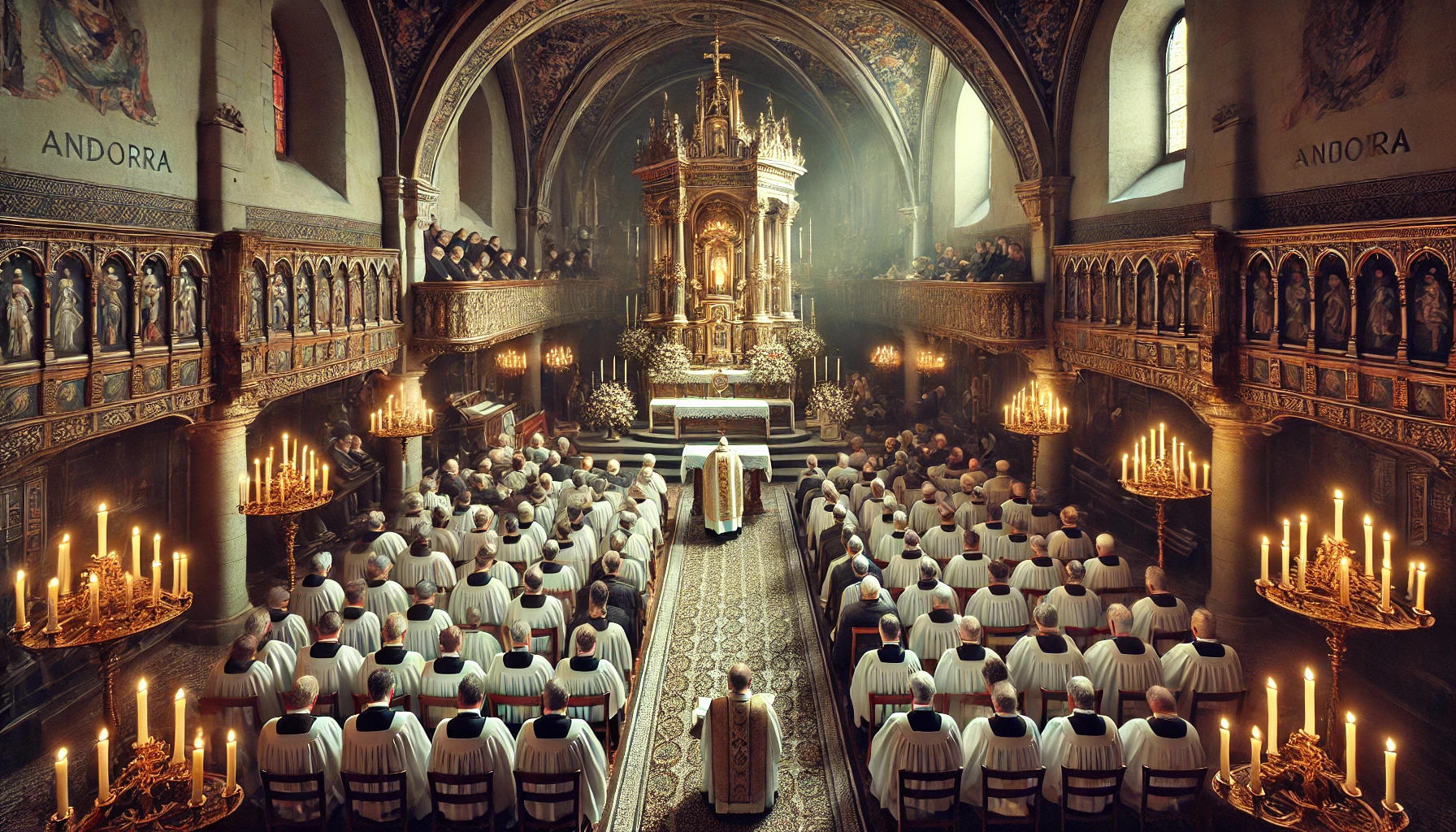
Another important element of the celebrations is the practice of fasting. Many Andorrans choose to abstain from food during the day as a form of penance and reflection. This practice is rooted in Catholic tradition and is seen as a way to connect more deeply with the meaning of Good Friday. The combination of religious celebrations and personal rituals creates a significant experience for Andorrans, who are dedicated to honoring the date in a profound and respectful manner.
Children also play an important role in the celebrations, with activities geared towards them, such as craft workshops and storytelling about Easter. These initiatives help pass on the traditions and values of Good Friday to new generations, ensuring that the cultural and religious legacy of Andorra remains alive. Thus, the combination of religious, cultural, and community events makes Good Friday a special moment that unites the entire Andorran population.
Typical Gastronomy of Good Friday in Andorra
The Andorran gastronomy on Good Friday is marked by dishes that reflect religious tradition and the cultural influences of the region. One of the most traditional dishes is "bacalhau à brás", which is prepared with shredded cod, eggs, and olives. Cod is a food frequently consumed at Easter, symbolizing the abstinence from red meat during the Lent period. This delicacy is a perfect example of how cuisine can be intertwined with religious traditions.
👉 Download the Calendar for 2025
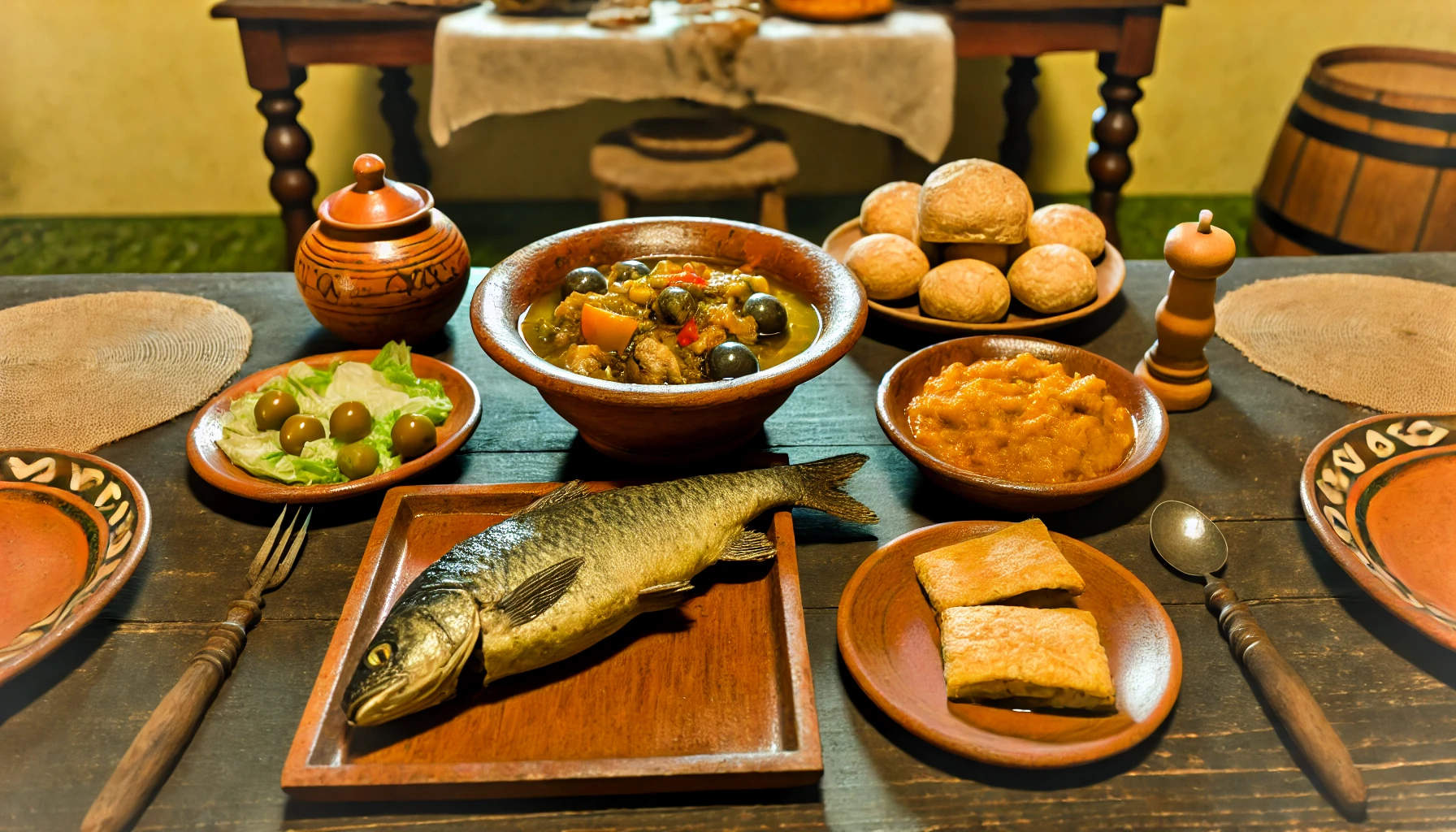
In addition to cod, desserts also play a special role in the celebrations. Many Andorrans prepare typical cakes and sweets, such as "canelons", which are made with thin dough and filled with meat or vegetables. These dishes are often served at family gatherings, where everyone can share and enjoy the local gastronomy. Food, therefore, is not just a matter of sustenance but also an element that brings people together during this significant date.
The meals on Good Friday are also moments of communion, where Andorrans gather to appreciate the food and each other's company. It is common for families to prepare dishes together, reinforcing family bonds. The exchange of recipes and stories while cooking together is an important part of the tradition, allowing new generations to learn about their cultural roots. Thus, gastronomy on Good Friday is a celebration of faith, family, and community in Andorra.
Final Summary
The Good Friday is an event that reflects the religious and social traditions of the community. During this special date, the practices of devotion and the symbolism of the crucifixion are central, allowing residents and visitors to connect with the spirituality and local history. This celebration, therefore, goes beyond a religious rite, serving as a link between past and present.
The traditions observed on this day in Andorra, such as the processions and reinterpretations of biblical passages, highlight the importance of faith in the daily lives of the Andorrans. These moments of collective reflection and celebration strengthen community ties and promote a sense of belonging. Thus, Good Friday becomes a point of unity between citizens and their beliefs, perpetuating customs that shape the cultural identity of the country.
Finally, the impact of Good Friday in Andorra transcends the religious aspect, also influencing the local economy through tourism and the promotion of cultural events. This intersection between tradition and modernity makes the celebration even more relevant, attracting both residents and visitors. Understanding the depth of this date is essential to appreciate the rich cultural tapestry that characterizes Andorra, making Good Friday an important landmark in the annual calendar of the country.
